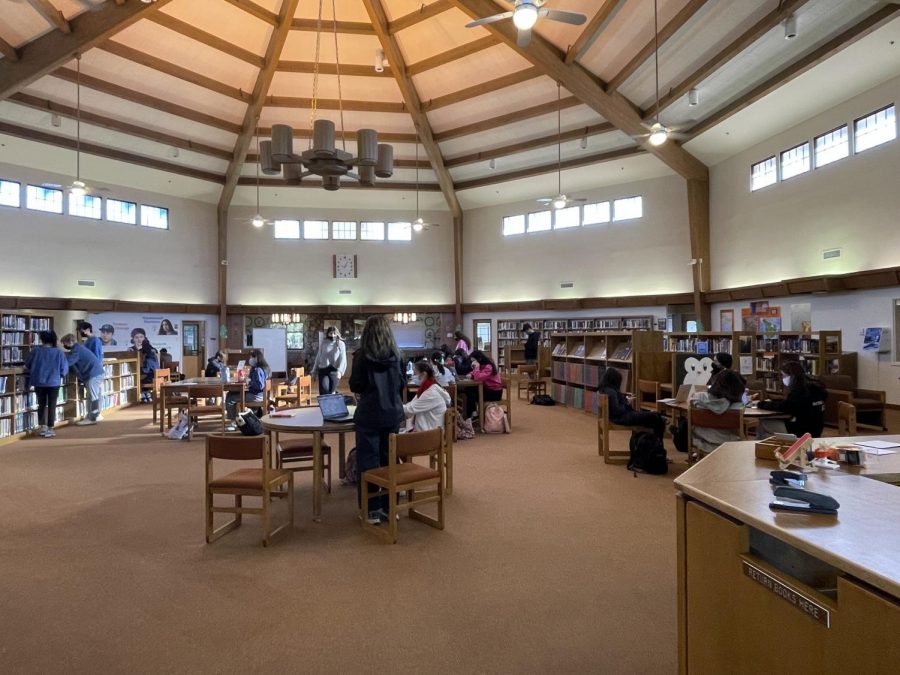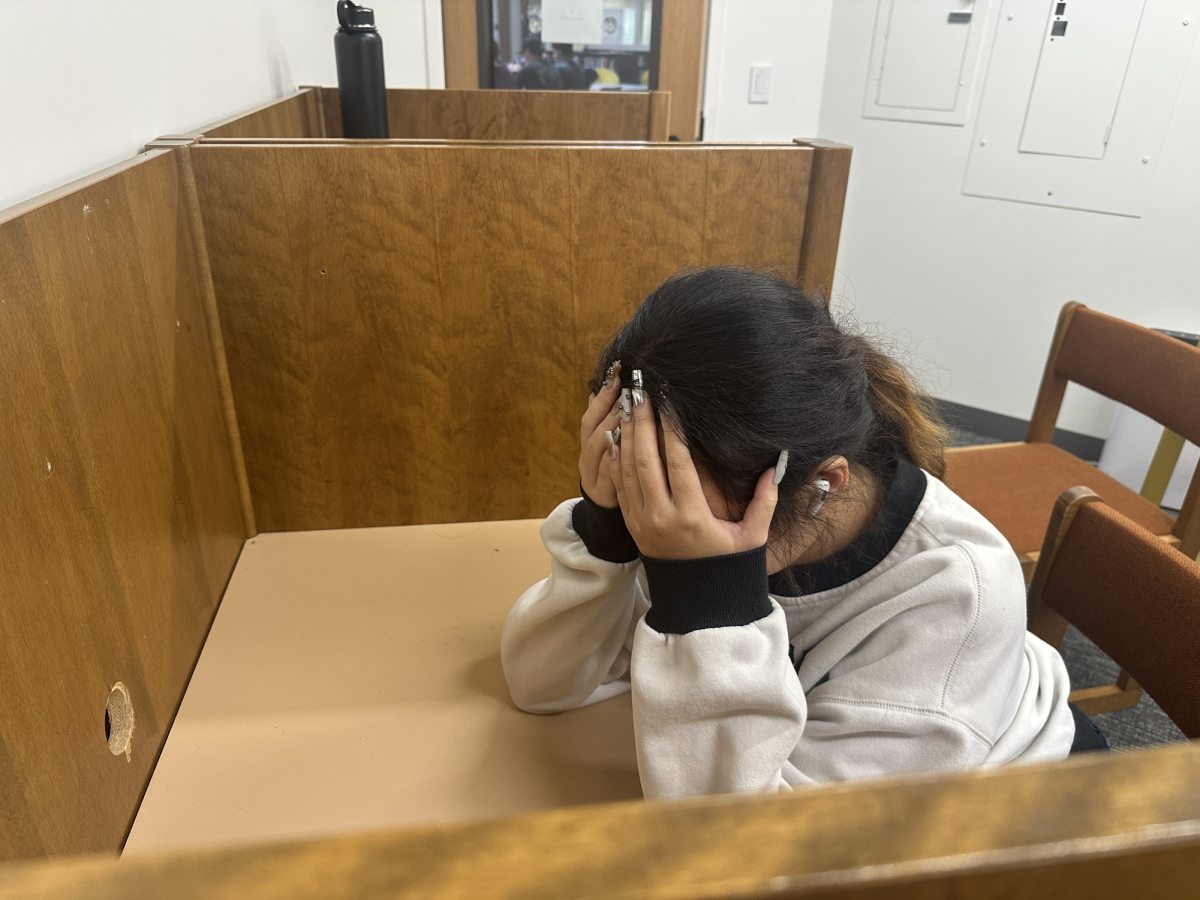From finger-staining newspapers to apps on your phones, you can read news anywhere at any time. Whether you get your daily dose of reality over a bowl of cereal the morning table from a folded newspaper or through quick check of Instagram posts and stories, news is at our fingertips to inform us about tragic horrors and the few good deeds that take place all around the world.
Everyone is familiar with the key players of news broadcasting all over the world, such as CNN, Fox News, and the New York Times, but what about local news? What is the purpose of small-scale reporting?
For some local towns, local news is now almost nonexistent. In many parts of the country, “news deserts,” or areas with little to no local news coverage, face the problem every day. The drying up of news was exacerbated by the COVID-19 pandemic, as many local news stations were forced to close or shut down for good.
Timothy Snyder, a Yale History Professor, states for the Washington Post why local journalism is so important for the everyday person, saying “The only way we can talk to other people is with some common understanding of the facts, or example whether or not our water is polluted or whether or not the teachers in our school are on strike.”
The role of news seems simple; it is a way for people to communicate with others about important events and educate readers about what is going on both in their towns and the greater world outside their scope of view, but it brings so much more.
In these news deserts, people may be able to tune into national news, but many lack the access to local news over the radio and getting that relevant blast of information to think about for the rest of the day. Large-scale reporting can be biased, too broad, or not relevant at times, but local news brings that sense of belonging and community to the listeners that national reporting cannot emulate.
Snyder also emphasizes that we, the readers, do not always have to like the news we are seeing or hearing, but any information is beneficial, nevertheless. Our sense of truth and reality changes from what is important and relevant to what makes us feel good instead.
Just this past month alone, there are so many things that happened—the Omicron variant has emerged, the Texas abortion ban was enacted, inflation is at an all-time high, vaccine and mask mandates keep changing, and more.
All this information is swept up and condensed into a digestible form for us to consume, and news helps keep relevant our views of the world. However, it is also important to check in with local happenings and news, which may be a smaller part of the world of journalism, but still largely important for everyone to have access to.
In our 150 acres of space that we call the Webb Schools, our job as journalists is to bring news coverage and innovation to everyone on campus.
There is always so much going on at Webb
Now that prompts the question: what impact does journalism have at Webb? Is it merely an option for those who do not want to pursue an instrument or art? Or is it something that is necessary for the Webb community? Who benefits from our news coverage?
There is a concrete role for journalists within the world, and that is to bring education through information for all audiences. The same principles apply here as well, but we as Webb journalists have that option to report about the community and provide relevant news through our publication.
Whether it is capturing photos of bears roaming around campus or delving deep into an analyzation about the fetishization of Korean culture, journalists reach for topics that are both meaningful and newsworthy.
Sunny Yu, Editor-in-Chief of the Webb Canyon Chronicle, agrees that the purpose of journalism is to get stories and news out there for audiences to become educated and informed.
“Webb journalism is a way to cover what is going on within our campus,” said Sunny Yu (‘22), Editor-in-Chief of the Webb Canyon Chronicle. “It gives us [the journalists] a platform for people around campus to be featured and have a voice. Editorials and coverage of news give everyone an equitable say, and we are actively looking for stories. We want people to be heard.”
On the Webb Canyon Chronicle, students can see a range of media: from straight reporting to editorials to photo galleries, journalism is not limited. It is as much of an outlet for creative expression as any other art course, yet we still have other responsibilities we need to be aware of.
“Writers should be rewarding the readers for their attention,” Dr. Dzula said.
We should keep in mind to bring innovation, support, and our responsibility to unite the community under a consistent outlet of media that keeps everyone up to date about what is going on here at campus.
We, as journalists, have the responsibility to report happy, exciting, sad, and frustrating news, always keeping in mind that our readers and the message we send out matters. Our community benefits from our publication, and we should continue to strive for more, creating new ideas, building strong opinions, and spotlighting the voices of the unheard.
“For the future, I hope the WCC can get larger readership and that more people can be involved in this process,” Sunny said. “I have been wanting journalism to have more of an interactive and grounded role in this community and have a larger presence on campus.”
Journalism is important, the writers are important, the readers are important, and news helps bring the community together through both small and big impacts.
“I would love for people in the future to look back and understand, with empathy, what the student experience was like during this remarkable time,” Dr. Dzula said. “I want for journalism to build a cohesive sense of purpose throughout the school. I want people to be heard, and feel like they have a means of sharing their voice through the publication.”
As news continues to create itself and journalists continue to report on it, we should always be aware and conscious of the impact of our work. As we share Webb news, on campus events, sports games, and more, our work is providing the link between the members of the community by sharing local and Webb-centric news. Journalism is not only a class, but also a presence on campus that helps connect students a little more to the community by providing news that educate and unite our readers.







![Many Webb students spend their free time in the library watching a popular TV show like Riverdale and Euphoria. “Based off what I’ve seen, like in Euphoria, because the actors are older, they don't showcase an actual high school life properly,” Sochika Ndibe (‘26) said. “Since [the actors] are older [and] playing a teenager, from a girl’s perspective, it is going to make you think you should look more developed at a young age.” The actor, who plays Veronica Lodge, was 22 years old at the time of filming.](https://webbcanyonchronicle.com/wp-content/uploads/2025/03/Antecol-Media-affects-how-society-functions-graphic-1200x900.png)







